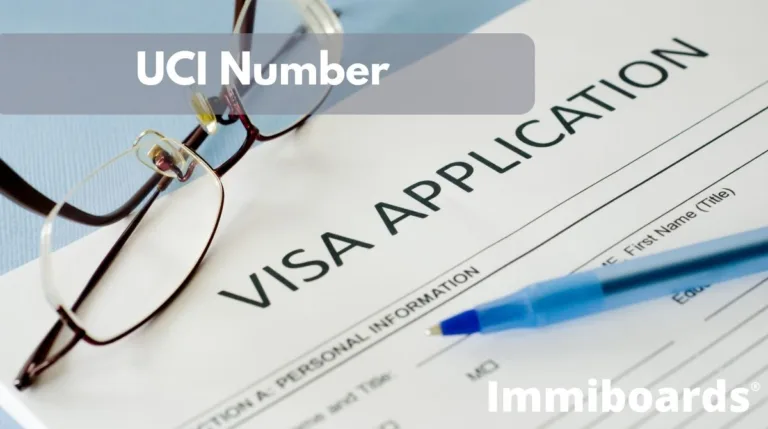The UCI, which stands for “Unique Client Identifier,” is a numeric reference assigned uniquely to each client by the Immigration, Refugees, and Citizenship Canada (IRCC). One of its distinguishing features is its consistency: your UCI number remains unchanged regardless of how many visa applications you file with the IRCC. This is because the UCI is tailored to the client and not to any specific application.
The UCI is sometimes referred to as the Client Identification Number, or simply Client ID. It can be found on any official documents that have been issued to you, be it from an IRCC office, a Case Processing Centre, or a Canadian visa office outside of Canada.
In terms of its format, the UCI or Client ID is comprised of sequences of numbers separated by hyphens. It can appear in one of two forms: either as four numbers followed by a hyphen and another set of four numbers (like ####-####) or as two numbers, followed by a hyphen, then four numbers, another hyphen, and a concluding set of four numbers (formatted as ##-####-####).
It’s essential to note the significance of the starting sequence in your UCI:
- If your UCI or Client ID commences with the term “CAN,” this indicates that the processing of your visa application hasn’t been initiated. Such a UCI with the “CAN” prefix is a temporary placeholder. Once your application processing commences, this will be replaced by an 8 or 10 digit UCI number.
- On the other hand, a UCI that starts with the letter “T” signifies a prospective client. These are temporary client records within the Global Case Management System (GCMS), and they get deleted as and when necessary.
In conclusion, the UCI is a critical identifier in the Canadian immigration system, helping both applicants and officials navigate the application process more effectively. Ensure you keep it handy and reference it in all your communications with the IRCC.






